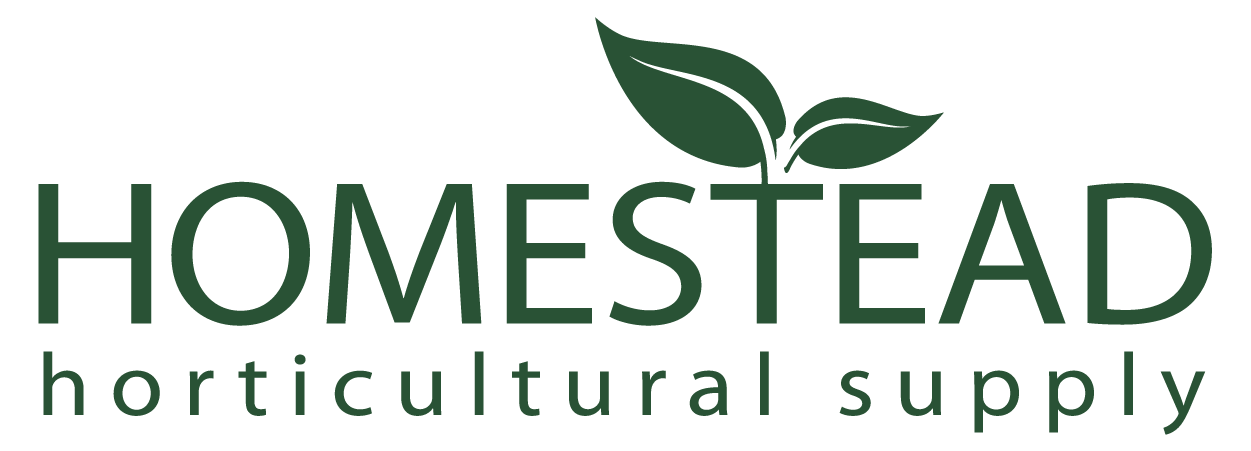 |
 |
Our enthusiastic and extremely knowledgeable perennials team is here to answer your questions and help you choose the best perennials for your situation. There’s always something in bloom for sun, shade, butterflies, birds or deer resistance as well as a variety of bulbs for your space.
Stroll through our time-tested favorites and introduce yourself to the newest varieties. We garden with perennials too; we love them and it shows!
|
148 found, showing page 5 of 10
Plant Height: 12 inches
Flower Height: 18 inches
Spacing: 18 inches
Sunlight: full sun, partial shade
Hardiness Zone: 2b
Group/Class: Happy Ever Appster Series
Description:
Everblooming, soft lemon-yellow trumpets with green throat and ruffled edges; sturdy, strong, easy to care for, great grassy texture and form; good for the beginner gardener and the pro
Ornamental Features:
Happy Ever Appster Big Time Happy Daylily features bold lemon yellow trumpet-shaped flowers with green throats at the ends of the stems from early summer to mid fall. The flowers are excellent for cutting. Its grassy leaves remain green in color throughout the season.
Landscape Attributes:
Happy Ever Appster Big Time Happy Daylily is an herbaceous perennial with a shapely form and gracefully arching foliage. It brings an extremely fine and delicate texture to the garden composition and should be used to full effect.
This is a relatively low maintenance plant, and is best cleaned up in early spring before it resumes active growth for the season. It is a good choice for attracting butterflies to your yard. It has no significant negative characteristics.
Happy Ever Appster Big Time Happy Daylily is recommended for the following landscape applications:
- Mass Planting
- General Garden Use
- Groundcover
Planting & Growing:
Happy Ever Appster Big Time Happy Daylily will grow to be about 12 inches tall at maturity extending to 18 inches tall with the flowers, with a spread of 24 inches. When grown in masses or used as a bedding plant, individual plants should be spaced approximately 18 inches apart. Its foliage tends to remain dense right to the ground, not requiring facer plants in front. It grows at a medium rate, and under ideal conditions can be expected to live for approximately 10 years. As an herbaceous perennial, this plant will usually die back to the crown each winter, and will regrow from the base each spring. Be careful not to disturb the crown in late winter when it may not be readily seen!
This plant does best in full sun to partial shade. It is very adaptable to both dry and moist locations, and should do just fine under typical garden conditions. It is not particular as to soil type or pH. It is highly tolerant of urban pollution and will even thrive in inner city environments. This particular variety is an interspecific hybrid. It can be propagated by division; however, as a cultivated variety, be aware that it may be subject to certain restrictions or prohibitions on propagation.

Ruffled purple blooms with yellow throats. Rebloomer. USDA 3-9
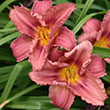
Rosy Returns Daylily | Dark, pinkish-red blooms have golden-yellow throats. Early season bloomer USDA 3-9
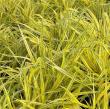
Golden Hakone Grass | Gracefully arching green leaves variegated with gold striping. Yellow-green flowers appear in loose, nodding panicles in mid-summer. Naturalizing. USDA 5-9
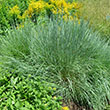
Upright clumps of slender, flat, linear bluish green leaves. Purplish-bronze blooms. Tolerates black walnut. USDA 3-9
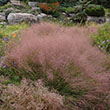
Airy reddish-pink blooms. Fine textured foliage. USDA 5-10
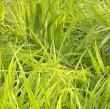
Rich-green, thick foliage. Great for containers. Dense, mounding habit. USDA 5-9
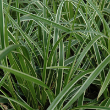
Height: 12 inches
Spread: 15 inches
Sunlight: full sun, partial shade, full shade
Hardiness Zone: 4b
Other Names: Creeping Japanese Sedge
Brand: Proven Winners
Description:
A low maintenance, cool weather ornamental grass featuring fast growing plants in the early spring and fall; beautiful narrow, arching foliage with forest green centers and creamy-white margins; well suited for containers, borders or garden beds
Ornamental Features:
Ice Dance Sedge is primarily valued in the garden for its cascading habit of growth. Its attractive grassy leaves are forest green in color with prominent white stripes. The foliage often turns brown in fall.
Landscape Attributes:
Ice Dance Sedge is an herbaceous evergreen perennial grass with a shapely form and gracefully arching stems. Its relatively fine texture sets it apart from other garden plants with less refined foliage.
This plant will require occasional maintenance and upkeep, and is best cleaned up in early spring before it resumes active growth for the season. Gardeners should be aware of the following characteristic(s) that may warrant special consideration:
- Spreading
Ice Dance Sedge is recommended for the following landscape applications:
- Mass Planting
- Border Edging
- General Garden Use
- Groundcover
- Naturalizing And Woodland Gardens
- Container Planting
Planting & Growing:
Ice Dance Sedge will grow to be about 12 inches tall at maturity, with a spread of 15 inches. Its foliage tends to remain dense right to the ground, not requiring facer plants in front. It grows at a medium rate, and under ideal conditions can be expected to live for approximately 10 years. As an evegreen perennial, this plant will typically keep its form and foliage year-round.
This plant performs well in both full sun and full shade. It prefers to grow in moist to wet soil, and will even tolerate some standing water. It is not particular as to soil type or pH. It is somewhat tolerant of urban pollution. This is a selected variety of a species not originally from North America. It can be propagated by division; however, as a cultivated variety, be aware that it may be subject to certain restrictions or prohibitions on propagation.
Ice Dance Sedge is a fine choice for the garden, but it is also a good selection for planting in outdoor pots and containers. It is often used as a 'filler' in the 'spiller-thriller-filler' container combination, providing a canvas of foliage against which the thriller plants stand out. Note that when growing plants in outdoor containers and baskets, they may require more frequent waterings than they would in the yard or garden.
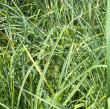
Foliage turns golden orange in the fall. Clump forming. USDA 5-8
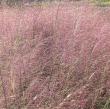
Plant Height: 18 inches
Flower Height: 30 inches
Spacing: 18 inches
Sunlight: full sun, partial shade
Hardiness Zone: 5a
Brand: Plant Select
Description:
A native mounding grass with very fine green foliage; airy plumes of minute ruby flowers in fall, appear like reddish fluffy clouds that dry after frost, and remain attractive through winter; breathtaking planted in masses; adaptable and hardy
Ornamental Features:
Undaunted Ruby Muhly Grass features airy plumes of ruby-red flowers rising above the foliage from late summer to mid fall. The rose seed heads are carried on showy plumes which fade to tan over time, which are displayed in abundance from late fall to late winter. Its grassy leaves remain green in color throughout the season.
Landscape Attributes:
Undaunted Ruby Muhly Grass is a dense herbaceous perennial grass with a shapely form and gracefully arching stems. It brings an extremely fine and delicate texture to the garden composition and should be used to full effect.
This is a relatively low maintenance plant, and is best cleaned up in early spring before it resumes active growth for the season. Deer don't particularly care for this plant and will usually leave it alone in favor of tastier treats. Gardeners should be aware of the following characteristic(s) that may warrant special consideration:
- Self-Seeding
Undaunted Ruby Muhly Grass is recommended for the following landscape applications:
- Mass Planting
- Rock/Alpine Gardens
- General Garden Use
- Groundcover
- Container Planting
Planting & Growing:
Undaunted Ruby Muhly Grass will grow to be about 18 inches tall at maturity extending to 30 inches tall with the flowers, with a spread of 24 inches. When grown in masses or used as a bedding plant, individual plants should be spaced approximately 18 inches apart. It grows at a slow rate, and under ideal conditions can be expected to live for approximately 10 years. As an herbaceous perennial, this plant will usually die back to the crown each winter, and will regrow from the base each spring. Be careful not to disturb the crown in late winter when it may not be readily seen!
This plant does best in full sun to partial shade. It prefers dry to average moisture levels with very well-drained soil, and will often die in standing water. It is considered to be drought-tolerant, and thus makes an ideal choice for a low-water garden or xeriscape application. This plant does not require much in the way of fertilizing once established. It is not particular as to soil pH, but grows best in poor soils. It is somewhat tolerant of urban pollution. This is a selection of a native North American species. It can be propagated by division; however, as a cultivated variety, be aware that it may be subject to certain restrictions or prohibitions on propagation.
Undaunted Ruby Muhly Grass is a fine choice for the garden, but it is also a good selection for planting in outdoor pots and containers. It can be used either as 'filler' or as a 'thriller' in the 'spiller-thriller-filler' container combination, depending on the height and form of the other plants used in the container planting. Note that when growing plants in outdoor containers and baskets, they may require more frequent waterings than they would in the yard or garden.
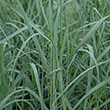
Blue-green foliage with feathery, pinkish-white plumes in summer. Strong, upright habit. USDA 5-9
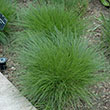
Purple bloom. Upright foliage with blue base. Fall color. Native. USDA 3-9
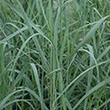
Blue-green foliage with feathery, pinkish-white plumes in summer. Strong, upright habit. USDA 5-9
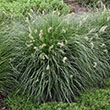
White blooms. Dwarf. Compact. Clumping green foliage. USDA 5-9
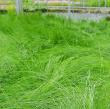
Height: 24 inches
Spread: 24 inches
Sunlight: full sun, partial shade
Hardiness Zone: 5b
Other Names: Stipa tenuissima, Needle Grass
Description:
An extremely delicate looking grass that provides gentle movement and sound in even the most delicate of breezes; a textural feast in the hands of a creative garden designer
Ornamental Features:
Mexican Feather Grass features airy plumes of gold flowers rising above the foliage in mid summer. Its attractive threadlike leaves are green in color. As an added bonus, the foliage turns a gorgeous harvest gold in the fall. The gold seed heads are carried on showy plumes displayed in abundance from late summer to late winter.
Landscape Attributes:
Mexican Feather Grass is a dense herbaceous perennial grass with an upright spreading habit of growth. It brings an extremely fine and delicate texture to the garden composition and should be used to full effect.
This is a relatively low maintenance plant, and is best cleaned up in early spring before it resumes active growth for the season. Gardeners should be aware of the following characteristic(s) that may warrant special consideration:
- Self-Seeding
Mexican Feather Grass is recommended for the following landscape applications:
- Mass Planting
- Rock/Alpine Gardens
- Border Edging
- General Garden Use
Planting & Growing:
Mexican Feather Grass will grow to be about 20 inches tall at maturity, with a spread of 24 inches. Its foliage tends to remain dense right to the ground, not requiring facer plants in front. It grows at a medium rate, and under ideal conditions can be expected to live for approximately 20 years. As an herbaceous perennial, this plant will usually die back to the crown each winter, and will regrow from the base each spring. Be careful not to disturb the crown in late winter when it may not be readily seen!
This plant does best in full sun to partial shade. It prefers dry to average moisture levels with very well-drained soil, and will often die in standing water. It is considered to be drought-tolerant, and thus makes an ideal choice for a low-water garden or xeriscape application. It is not particular as to soil type or pH. It is somewhat tolerant of urban pollution. This species is not originally from North America. It can be propagated by division.
148 found, showing page 5 of 10
